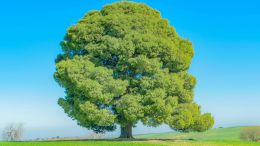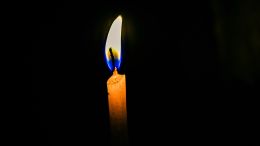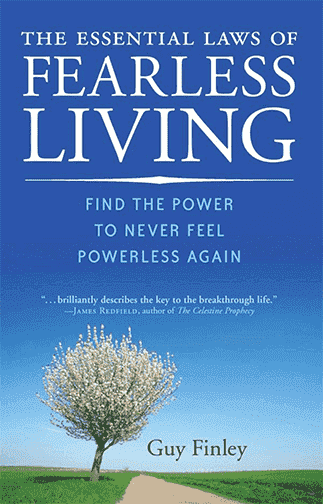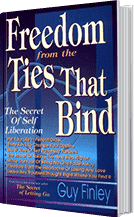Special Lessons
-
 Special Lesson
Special LessonIdentifying With a Negative Reaction is Not Inevitable
- Posted: 04/23/24
- 1204 words
- 0 View
- Comments (0)
We have in us -- built over time as part of the construct of our personality - a literal host of demands. Things that over time have been thought over and over and over again until the construction of those thoughts becomes an unconscious attitude. For instance, if you think enough times, "Why are they doing this? I shouldn't be treated like this!" Gradually, you walk around with a chip on your shoulder, but you don't know it's a chip on your shoulder...
-
 Special Lesson
Special LessonBringing Yourself Back Into the Great and Unconditioned Now Where All Is One
- Posted: 04/15/24
- 1128 words
- 0 View
- Comments (0)
We are created and each of us is intended to discover the truth of ourselves within ourselves; no authorities are needed. Our lives -- and all of our relationships as revealed in the present moment -- are the ground we must plow. These soils, rendered receptive through conscious humiliation, are seeded with our intention to be kind and true to one another, to give up our selfish ways, and to willingly embrace whatever life lessons we need to further...
-
 Special Lesson
Special LessonIf We Want To Receive Love We Have To Give It
- Posted: 04/08/24
- 635 words
- 0 View
- Comments (0)
Love exists. She is never not present although her life-giving presence is rarely perceived, much in the same way as we breathe in air moment to moment barely noticing the gift of life it sustains. Nothing exists without Love. She is the secret Heart of all. These are not just words. They are an introduction to an Invitation created when Time began. To what are we invited? To know that we are already a measure of Love's Timeless Life...
-
 Special Lesson
Special LessonWhat Is Within You Is Changed By The Light that Shows It To You
- Posted: 04/01/24
- 434 words
- 0 View
- Comments (0)
What if you actually understood there is no death? Think for a moment what your life would be like. And I'm not just talking about the incessant human fear of their mortality. I'm talking about those moments in which it feels like you're dying because something has happened to you that you don't like, and how you struggle to keep alive the very thing caught in that crisis -- that nature struggling, suffering instead of understanding that the moment has come...
-
 Special Lesson
Special LessonWhat Must I Do to Succeed Spiritually?
- Posted: 03/26/24
- 401 words
- 0 View
- Comments (0)
Almost every day I receive a letter, an e-mail, or phone call from an aspirant who wants to know, essentially, the following: "What must I do to succeed spiritually?" Or, in a slight variation on that theme: "What's the right way to do what I must in order to awaken?"
-
 Special Lesson
Special LessonLife is Telling You All the Time About Yourself
- Posted: 03/19/24
- 909 words
- 0 View
- Comments (0)
I'm going to give you five ways to make the most out of every moment of your life. They're very simple ones. Then I'm going to explain each simple one. These actually are presented to you in a specific order because there's a broader story. Whenever I order principles, there's a broader story that's told in the collective understanding of them.
-
 Special Lesson
Special LessonWhat's Missing in Our Lives?
- Posted: 03/12/24
- 1054 words
- 0 View
- Comments (2)
Our lives, as they are, are less than half of what they are intended to be. We can recognize that something is clearly missing. Often, even though we come up with: "It's him," "It's her," "It's this," or "It's that" which is clearly missing, it turns out that we may even get these things, and things still seem to be missing in our lives...
-
 Special Lesson
Special LessonThe Fundamental Misunderstanding of What I Am
- Posted: 03/04/24
- 1452 words
- 0 View
- Comments (0)
Do you know people who, when things are going well for them, but things are going bad for you, will tell you: "Let go and let God"? Doesn't it drive you crazy? They got a check that day or they lost a few pounds, or it's a good hair day, or whatever it is, and they say, "Let go and let God." And of course, if they could see, you want to throttle them at that moment for their insensitivity...
-
 Special Lesson
Special LessonThe Undying Source of Wisdom, Compassion and Strength
- Posted: 02/26/24
- 408 words
- 0 View
- Comments (0)
Within each of us lives a tireless, latent longing to touch -- and be touched by -- life's invisible celestial forces. For instance, whenever we stand as a silent witness to the endless expanse of a dark night sky, we are inwardly moved by this outer display of timelessness spread out above us...
-
 Special Lesson
Special LessonYou Do Not Have To Accept Your Present Life-Level
- Posted: 02/20/24
- 979 words
- 0 View
- Comments (0)
You can be self-enlightened instead of self-frightened. You have a choice. This discovery that you can always choose in favor of yourself is real excitement. You do not have to accept your present life-level. Life-level is what determines whether you sail through this life or sink in it. At present, it may seem to you as if there are times when you don't have much choice in your own life. I want you to know that this is a lie...
-
 Special Lesson
Special LessonBe In Agreement With Life At All Times
- Posted: 02/12/24
- 1174 words
- 0 View
- Comments (0)
Light, love -- all that is good and holy -- already exists. All the wisdom you and I will ever need already lives within us. It's just that we are not where the wisdom is. Why? Because we want to know, to prove, to get. We want to be seen as something special. All of us with that mindset are set to suffer ourselves until one day we see, "This doesn't work." In that same moment the epiphany comes, and suddenly we can see what we have been...
-
 Special Lesson
Special LessonYour Humiliation Is Your Salvation
- Posted: 02/05/24
- 930 words
- 0 View
- Comments (0)
There is a part of us that summarily rejects the moments when we see -- by a light that we would rather not see -- our actual condition. And in that moment of helplessness, we have a choice to recognize that were it not given to us in that moment by something greater than what we don't want to see, we would never be able to see it... and never have the opportunity to transcend ourselves...















